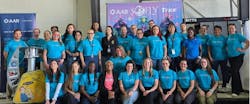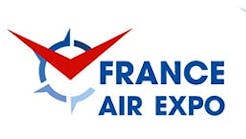EASA Guidelines Approve Digital Training for Cabin Crew, Aeroclass Become First to Offer It to Training Schools
In quick response to the recently announced changes in European Union Aviation Safety Agency (EASA) guidelines, Aeroclass, an aviation digital learning platform, begins offering digital cabin crew training to aviation training organisations, becoming the first in the market to offer such a possibility.
The recently updated EASA Guidelines for Initial Training now permit training schools to conduct a portion of their theoretical training online instead of exclusively in the classroom. This means that digital learning can replace in-person training as long as it covers all the necessary information required to fulfil the training needs of the subject or a particular section. The theoretical training that is suitable for online delivery includes topics such as aviation terminology, theory of flight, areas of operation, meteorology, effects of aircraft surface contamination, and more.
Jurgita Lukauskiene, Aeroclass CEO, has expressed enthusiasm for the inclusion of digital learning in Cabin Crew Initial Training. “The aviation training industry has been slow to adopt changes, therefore the recent amendments to the EASA Guidelines on the conduct of Initial training have been a welcome development. By adopting a digital environment, training schools can offer a more flexible model, while saving the costs of the process at the same time. Online training allows trainees to study at their own pace and from any location, eliminating the need to travel to the classroom and incur additional costs such as accommodation.”
According to Lukauskiene, many training organisations would benefit from digital training, but they may not have the necessary systems in place to provide it yet. “We partner with aviation training schools to offer a modern and convenient platform to host digital training classes. This approach eliminates the need for aviation training schools to invest significant funds into creating and maintaining their own platform. By choosing an already established and efficient tool, schools can leverage the opportunity to become early adopters of digital training for cabin crew.”
Currently, only a portion of theoretical cabin crew training is available through digital platforms. However, Lukauskiene anticipates that in the future, most cabin crew training will be conducted online, with only a few days set aside for practical sessions and examinations. “Adopting digital learning will lead to more efficient and sustainable training, which is crucial during times of aviation staff shortages. By training crews online, aviation training organisations can optimise their processes, save time, and reduce the costs required to prepare aviation professionals,” she explains. “I believe that we are on the verge of a massive shift in aviation training, and Aeroclass is ready to be a part of this important change.”




